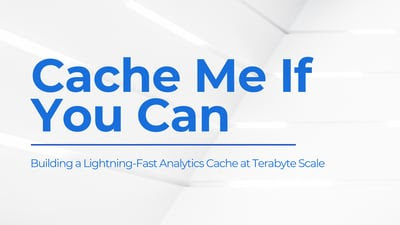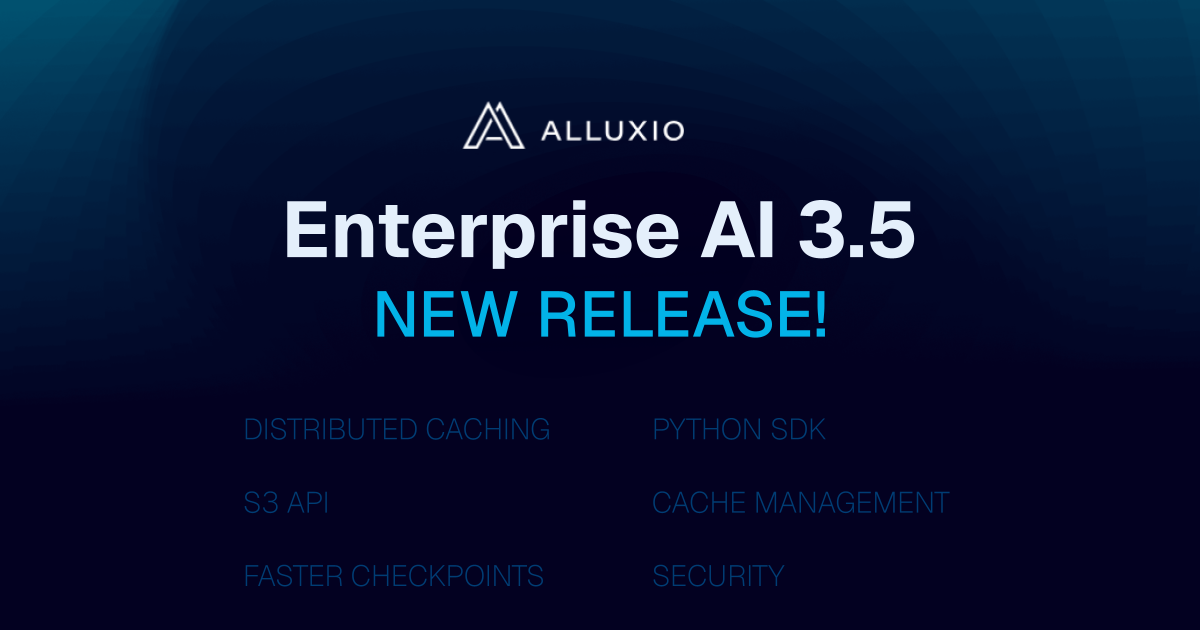Alluxio, formerly Tachyon, began as a research project when I was a Ph.D. student at UC Berkeley’s AMPLab in 2012. At the time, Spark and Mesos were taking off. We saw what Spark and Mesos could do for compute and resource management respectively, while the storage piece of this story was missing. Together with my research group, we started investigating how to enable memory speed data sharing across different applications.
I built the first version of Alluxio during Christmas of 2012, and open sourced it in April 2013. Two years later, Alluxio, Inc. was founded, receiving a $7.5 million investment from Andreessen Horowitz, to realize the vision of Alluxio becoming the de facto storage unification layer for big data and other scale out application environments and to provide a commercial backer for the project.
Today, we are very excited to announce the 1.0 release of Alluxio, the world’s first memory-centric virtual distributed storage system, which unifies data access and bridges computation frameworks and underlying storage systems. Applications only need to connect with Alluxio to access data stored in any underlying storage systems. Additionally, Alluxio’s memory-centric architecture enables data access orders of magnitude faster than existing solutions.
Now, organizations can run any computation framework (Apache Spark, Apache MapReduce, Apache Flink, etc.) with any storage system (Alibaba OSS, Amazon S3, OpenStack Swift, GlusterFS, Ceph, etc.), leveraging any storage media (DRAM, SSD, HDD, etc.).

What we have accomplished
Over the past three years, Alluxio has evolved from a small codebase for research prototyping into a stable and reliable system, with a vibrant community, deployed by companies around the world. Since the first open source release, our community has grown from 1 contributor to more than 200 contributors from over 50 companies. There are production deployments of Alluxio with hundreds of machines. Our meetup group has grown to more than 800 people, and the most recent meetup had over 300 registrants. The number of commits has grown from 200 to more than 12,000.


Beyond the numbers, we have seen that Alluxio is solving critical problems in enterprises across different industries around the world. For example, search giant Baidu has been running Alluxio in their production for more than a year. Alluxio brings them 30X performance improvement. Barclays, a world leading bank, uses Alluxio to make the impossible possible, by reducing the end-to-end latency from hours to seconds. Public cloud providers such as Alibaba and RackSpace have also shown how Alluxio virtualizes their object storage systems. Intel has published articles to showcase several ways to leverage Alluxio in their customers’ environments. IBM presented how Alluxio can abstract OpenStack storage to enable fast data analytics.
It has been exciting to see the project adoption grow from zero companies to many, including various industry leaders. The achievements thus far validate the tremendous potential of Alluxio and demonstrate the industry and community’s great excitement around it.

What to look forward to
Alluxio and its community have grown tremendously in many aspects over the past three years. With the increase in adoption of Alluxio and the growing community, we established a nonprofit organization, Alluxio Open Foundation, to provide a better venue for the project -- stay tuned for the details. The project has been rebranded from Tachyon to Alluxio to protect it from potential trademark litigation and to preserve the intellectual property of the open source software community’s contributions internationally.
Furthermore, in response to growing demand for a forum to communicate and learn about Alluxio, we are planning for the first Alluxio Conference to take place later this year in the San Francisco Bay Area. If you are interested in presenting, attending, or sponsoring, please let us know.
Kudos to the Alluxio community for all we have achieved. Let us look forward to the future!
Further reading:
.png)
Blog

Suresh Kumar Veerapathiran and Anudeep Kumar, engineering leaders at Uptycs, recently shared their experience of evolving their data platform and analytics architecture to power analytics through a generative AI interface. In their post on Medium titled Cache Me If You Can: Building a Lightning-Fast Analytics Cache at Terabyte Scale, Veerapathiran and Kumar provide detailed insights into the challenges they faced (and how they solved them) scaling their analytics solution that collects and reports on terabytes of telemetry data per day as part of Uptycs Cloud-Native Application Protection Platform (CNAPP) solutions.

With the new year comes new features in Alluxio Enterprise AI! Just weeks into 2025 and we are already bringing you exciting new features to better manage, scale, and secure your AI data with Alluxio. From advanced cache management and improved write performance to our Python SDK and S3 API enhancements, our latest release of Alluxio Enterprise AI delivers more power and performance to your AI workloads. Without further ado, let’s dig into the details.

.png)